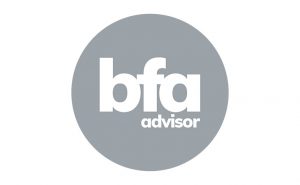Whether you’re buying or selling, getting the right legals in place is crucial.
Here are some Frequently Asked Questions for Franchisees.
Does it make a difference, in terms of the process and issues, whether I am buying or selling a franchise?
Whether you are buying or selling a franchise the process is broadly similar. However, your aims and concerns will vary. In each case we can tailor the support we give you to ensure your objectives are achieved.
How will I know whether the price I am paying for the franchise is a fair one?
The price that you pay for your franchise will depend on a number of factors including the profitability of the business, the value of the assets you are buying and the liabilities you are taking on. We strongly advise that you take advice from an accountant to assist in arriving at a sensible price that you are prepared to pay (and for which the seller is prepared to sell). However, we can help you with the due diligence process to ensure, as far as possible, that there are no issues within the business, which would impact on the value of the franchise you are acquiring.
Is taking legal advice before signing a franchise agreement crucial?
You should always take advice on the franchise agreement as this is the document which will govern the relationship between you and the franchisor. As the franchise agreement is not a document which is normally negotiable, we can prepare a report on the agreement on your behalf to highlight the commercial terms and any issues that you should raise with the franchisor.
When buying a franchise, will I be buying shares in the franchise company or just the assets?
Whether you buy the shares in the company operating the franchise or simply the assets of the franchise, is something you will need to consider carefully. The decision will depend on a number of factors including the tax implications, which you should discuss with your accountant. Where you are buying the assets of the franchise you are able to cherry pick those assets which you want to acquire and leave behind any liabilities you do not want to take on. When buying shares in a company you acquire all the assets and liabilities of the business and therefore need to be certain as to exactly what you are buying/taking on.
In selling my franchise, will I need to give any future assurances and/or warranties?
Yes, you will. The purchase agreement will contain warranties. These are promises you will give about the business and in the event that the warranties you give are untrue, then the buyer may be able to claw back from you all or part of the consideration you have been paid for your business. As part of the process you will be given the opportunity to disclose information to the purchaser against those warranties. We can assist you in preparing these disclosures to avoid any future claims.
In selling my franchise, can I expect or demand to be paid in full on completion?
Whether you receive all or part of your consideration on completion will depend on what you agree with the buyer. It is common however for part of the consideration to be deferred. If you are receiving part of the consideration at a later date we can help you to ensure as far as possible that you are paid in full by asking the buyer to give you some form of “security” for future payments.
When I sell my franchise, will I have any on-going responsibilities for the franchise employees?
Unlikely. If you are selling your shares in the company operating your franchise the employees will remain with the company. If you are selling the assets of the franchise then, as a general rule, under the Transfer of Undertaking (Protection of Employees) Regulations 2006 (“TUPE”) the employees will automatically transfer to the buyer. However, both the seller and buyer must comply on a transfer with the procedures laid down in TUPE to avoid employment claims or financial penalties, which we can assist you with. In limited circumstances TUPE will apply in the event of a share sale.
When I am selling my franchise, what happens to the lease of the premises I am operating from?
The lease is usually the subject of an assignment from the seller to the buyer. This generally requires landlord’s consent. The buyer takes on full responsibility for the premises from the date of assignment. This includes past and future liabilities. The seller may be asked to provide warranties regarding the lease and premises in the contract for sale. These warranties usually say that there are no subsisting breaches of covenant, there are no outstanding rent reviews, the rents have been paid up to date and all planning laws have been complied with during the seller’s occupation. Additionally, the landlord may require that the seller guarantee the performance of the buyer whilst it holds the lease.


